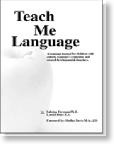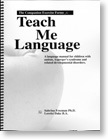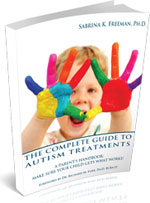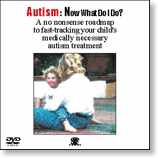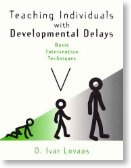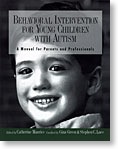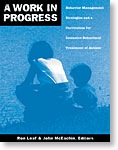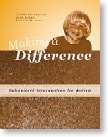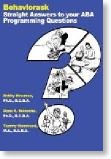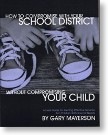religion
Religiosity and Autism: Studying the Wrong Question
27/11/12 18:49 Filed in: autism | Asperger's Syndrome
A review of Why Religion is Natural and Science Is Not published in Psychology Today reported a lack of ability of those with autism to believe in God. Researchers have suspected:
“that religious belief and understanding is obstructed by ASD and that this results from impaired theory of mind capacities.”
New studies confirm this finding. My instant reaction was big surprise, and tell me something I don’t know! It’s not a big surprise that abstract thinking is typically difficult for people with autism. It may be hard to believe for some, but belief in God is not a prerequisite to be part of a faith-based community.
The article seems to make a connection between belief in a higher being and participation in religious life. Once again, these researchers are asking the wrong question.
Here’s why.
It is irrelevant to most families of children with autism whether their child with autism is a believer or not insofar as theory of mind issues make it a near impossibility. What is important, however, is that the faith-based community with which they are affiliated wholeheartedly embraces their child as a member! I suggest that the question that needs to be studied is which faith-based communities are most likely to integrate people with special needs into the broader community, irrespective of their ability to believe in a higher being. The biggest problem that families of children with autism face is not whether their children have faith, but rather, whether the community will accept their family now that they have a child afflicted with autism. Moreover, although children with autism may be tolerated, how will faith-based communities deal with these children when they reach adulthood? It’s one thing to integrate disabled children; it is quite another matter to embrace adults with autism in a faith-based community without the knee-jerk instinct to segregate.
The correct question to study is whether typically developing adults have the capacity in a faith-based organization to embrace people with special needs rather than just give lip service to it.
“that religious belief and understanding is obstructed by ASD and that this results from impaired theory of mind capacities.”
New studies confirm this finding. My instant reaction was big surprise, and tell me something I don’t know! It’s not a big surprise that abstract thinking is typically difficult for people with autism. It may be hard to believe for some, but belief in God is not a prerequisite to be part of a faith-based community.
The article seems to make a connection between belief in a higher being and participation in religious life. Once again, these researchers are asking the wrong question.
Here’s why.
It is irrelevant to most families of children with autism whether their child with autism is a believer or not insofar as theory of mind issues make it a near impossibility. What is important, however, is that the faith-based community with which they are affiliated wholeheartedly embraces their child as a member! I suggest that the question that needs to be studied is which faith-based communities are most likely to integrate people with special needs into the broader community, irrespective of their ability to believe in a higher being. The biggest problem that families of children with autism face is not whether their children have faith, but rather, whether the community will accept their family now that they have a child afflicted with autism. Moreover, although children with autism may be tolerated, how will faith-based communities deal with these children when they reach adulthood? It’s one thing to integrate disabled children; it is quite another matter to embrace adults with autism in a faith-based community without the knee-jerk instinct to segregate.
The correct question to study is whether typically developing adults have the capacity in a faith-based organization to embrace people with special needs rather than just give lip service to it.
Finding Religion to End Run Autism Education Discrimination
10/02/12 17:32 Filed in: autism | Asperger's Syndrome
Isn’t it grand when the public school system successfully mainstreams children with autism. When everyone works together and makes the child with autism a valued member of the classroom, it’s truly wonderful!
What happens, though, when this is not the reality? Parents have three choices: 1) they can accept the sub-standard educational experience offered to their child and live with this depressing reality for 13 years, 2) they can fight the system, getting the lawyers to communicate in a way that makes the school do the right thing (often mortgaging their house to pay for the fight), or 3) they can place their child in private school.
Here’s where religion comes in. When shopping for a private school, it may be wise to “find religion” because your odds of finding a private school that will actually take your child increases once you add parochial schools to the mix! In addition, many religious private schools are not as expensive since they are often subsidized by members of the associated congregation. An additional benefit is that your child becomes a member of a peer group that is being taught kindness and inclusion for special needs children as part of religious teachings.
Not all religious school administrators are equally open-minded; however, you can visit a number of parochial schools until you meet a religious leader who is sufficiently pious to do the right thing. The advantage of a private school is that you are the customer and, therefore, the school has more incentive and flexibility to meet the needs of your child.
Sometimes it’s worth fighting the powers that be to make sure your child has access to the neighborhood school and, therefore, the neighborhood kids; however, sometimes the battle may be too painful, onerous or impossible to win. When the battle against intransigent public schools hits the wall, it may be time to find a welcoming religious community to provide your child with a viable alternative.
What happens, though, when this is not the reality? Parents have three choices: 1) they can accept the sub-standard educational experience offered to their child and live with this depressing reality for 13 years, 2) they can fight the system, getting the lawyers to communicate in a way that makes the school do the right thing (often mortgaging their house to pay for the fight), or 3) they can place their child in private school.
Here’s where religion comes in. When shopping for a private school, it may be wise to “find religion” because your odds of finding a private school that will actually take your child increases once you add parochial schools to the mix! In addition, many religious private schools are not as expensive since they are often subsidized by members of the associated congregation. An additional benefit is that your child becomes a member of a peer group that is being taught kindness and inclusion for special needs children as part of religious teachings.
Not all religious school administrators are equally open-minded; however, you can visit a number of parochial schools until you meet a religious leader who is sufficiently pious to do the right thing. The advantage of a private school is that you are the customer and, therefore, the school has more incentive and flexibility to meet the needs of your child.
Sometimes it’s worth fighting the powers that be to make sure your child has access to the neighborhood school and, therefore, the neighborhood kids; however, sometimes the battle may be too painful, onerous or impossible to win. When the battle against intransigent public schools hits the wall, it may be time to find a welcoming religious community to provide your child with a viable alternative.


